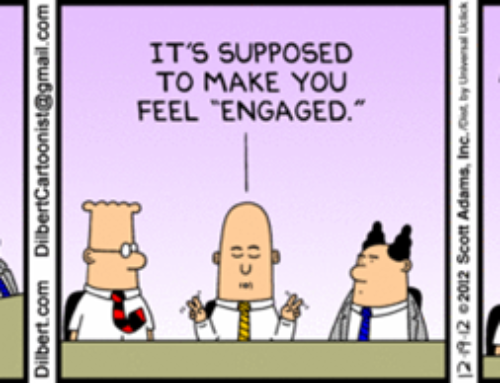A recent survey of 2000 workers by Mindjet found that whilst most workers were keen to help their organisations to perform, 19% lacked the motivation to do their best.
A quarter of workers felt that their efforts were not being sufficiently recognised, while some felt they have to flag what work they have done so people are aware they are busy, or stay late even if they do not have very much work to do. More than a quarter (27%) said these conditions were contributing to them feeling stressed.
Line managers also bear the brunt of this gap between wanting to do well and having the motivation to do so: 30% said they felt their team needed to improve, but struggled to motivate them.
This apparent state of apathy is not good news for organisations trying to battle the ongoing downturn. When times get tough, it’s critical that the team perform at their best, to keep productivity high and capture the enthusiasm to implement new business ideas and plans effectively.
Motivation theories have been around for ages and all you need to do is drop the words Maslow, Hertzberg or Hygiene into a conversation and eyes start rolling – so if we know all this stuff about what motivates others, why is this report stating Team Leaders and Managers are finding it hard to motivate their teams?
Relationships
A significant issue that can cause this apparent frustration with motivation is the state of the employment relationship – i.e how close the employee feels towards their supervisor or manager. Where there is a close relationship there is greater trust between the two parties, and consequently more open communication. This in itself is a source of motivation – sense of inclusion.
By building a better understanding of the team, Supervisors also have a greater insight as to how an employee is likely to react to bad news, take disappointment or handle changes in duties, which can be sources of frustration. With this knowledge the canny Supervisor is then in a position to pre-empt negative reactions and ensure that any bad news given is delivered in the most appropriate way.
Motivation as an outcome
The final positive for focusing on the relationship is that motivation is an outcome – its a feeling the employee has as a consequence of other stuff taking place, that leads to positive behaviour.
So rather than tying yourself up in knots working out cunning incentives, bonuses and schemes to motivate – take a step back and think are the following in place – if they are the employee is likely to feel more motivated to work anyway:
- Open and honest relationship with the boss
- Opportunity for employees to express a true opinion
- Evidence that when asked for employees opinions are acted on
- Fair and open appraisal process
- Clear roles and responsibilities
- Fair recognition of effort
- A Supervisor who has the time to stop, question and listen to the team
- A Supervisor who acts as a positive role model
- A Supervisor who can make a decision
So, whats the real story?
The real story isn’t that employees are feeling apathetic towards their work – the real story is that many Supervisors simply do not know how to build strong working relationships with their colleagues to get the best out of them.
Supervisors, don’t beat the team up for being un motivated, motivation is an output from inputs – you need to make sure you have the inputs in place before you can get the output.




